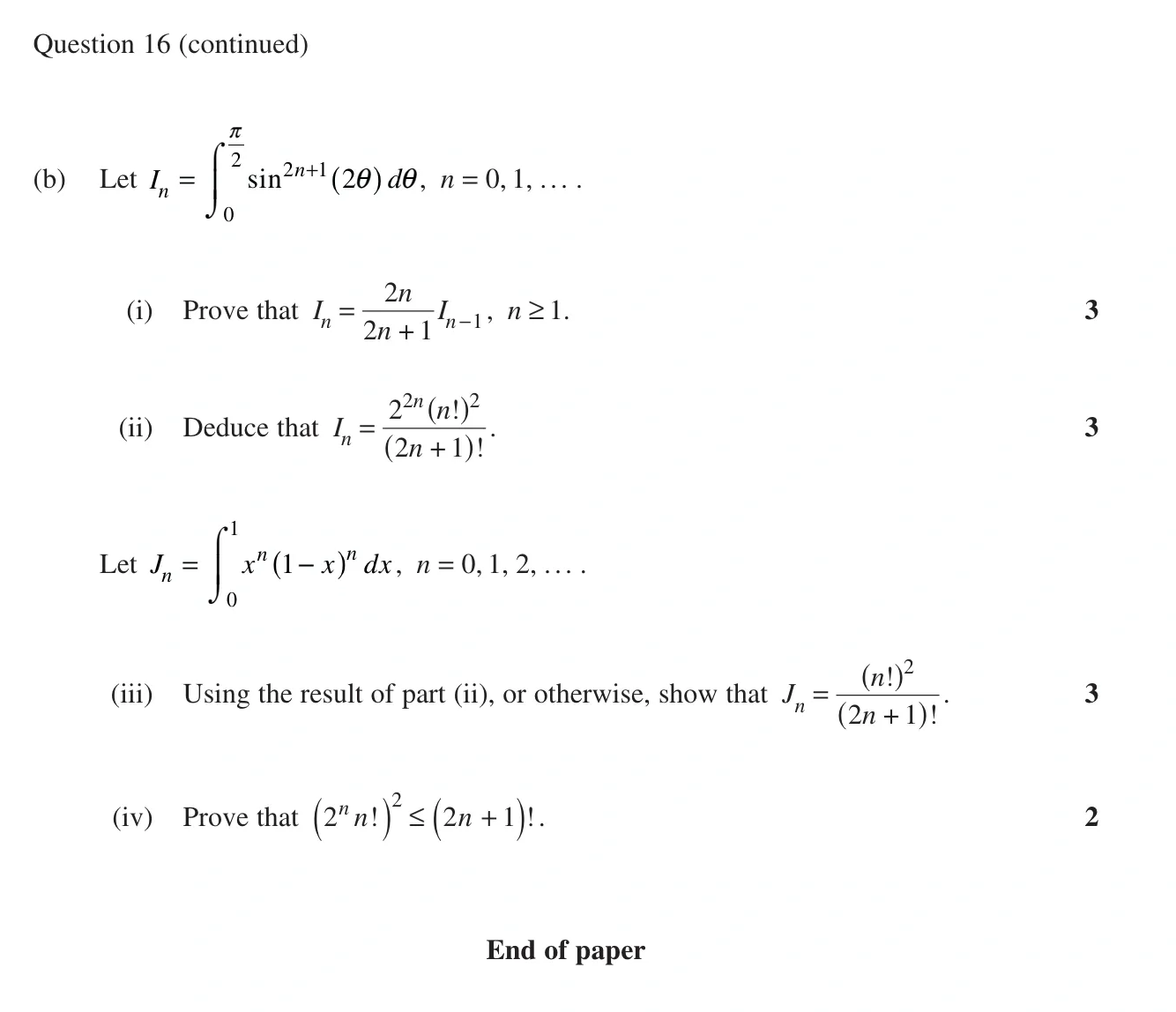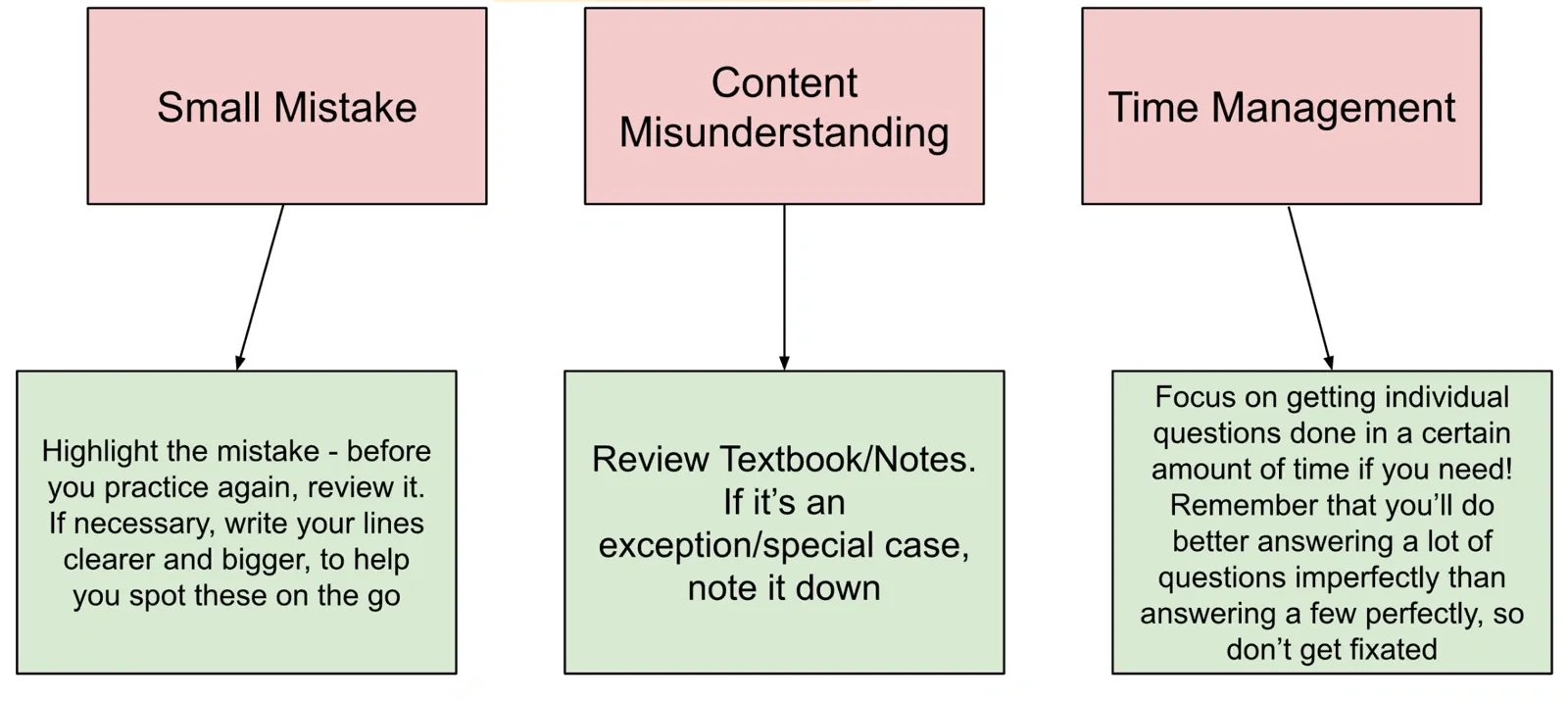Studying Mathematics Extension 2 can be incredibly daunting. Not only is it the hardest level of mathematics you can study for the HSC, but the sheer amount of complex (no pun intended) concepts that you have to understand in 4U Maths can feel suffocating. And then you have to apply all these concepts within a 3-hour timeframe?!
Having been at the same point only a few years ago, our team of tutors here at Project Academy wanted to tell you that acing 4U Maths is FAR more achievable than you may think.
To help you out, we’ve compiled 3 maths study tips that will guide you towards this goal!
Tip 1: Systematically check your understanding of each topic.
This might sound painfully obvious, but ask yourself - “do I fundamentally understand each concept and formula, or do I just memorise how to solve a question?”
Despite all the fancy bells and whistles, at its core, Maths is about problem-solving.
Unlike other subjects, Maths isn’t focused on regurgitating theory. There’s no use memorising sample answers or formulas, because if the question changes slightly, you’d be stuck again. To do well, you need to fundamentally understand the idea of each problem.
One way to think about maths problems is that they’re like big scary video game enemies that we need to take down. All these scary formulas and theorems with unnecessarily fancy names attached (looking at you, de Moivre 🙄) are simply the weapons we’re going to use to help us take this boss down.
Different ‘enemies’ are ‘weak’ to different things. As such, one of the most important skills is understanding your ‘weapons’, i.e. how and when to use each formula.
How to check your fundamentals
Write down a list of all the topics you have learned - if you get stuck, you can use NESA’s official syllabus to guide you. Also, note down any associated formulas or concepts. You can do this at any point throughout the course, whether it’s after your first lesson or the night before trials - just make sure you update it as you learn new things.
Then, for each formula or concept ask yourself the following questions:
-
What is the main idea behind this formula/concept?
-
What type of question does this formula/concept help us solve?
-
How would I know to use this formula/concept and not a different one?
-
Provide an example of how you would use the formula/concept, from a practice question. (Optional - if there’s a special variation of the concept, or an exception, note it here as well).
Going through this short process does two things. Firstly, it takes away a lot of the ambiguity from Maths exam questions, and gives you more clarity about how to apply what you’ve learned. It also allows you to see where you might not fully understand a concept. Use a textbook or set of notes to try and remedy those misunderstandings.
In fact, identifying gaps in knowledge and then supplementing it with resources is KEY to success in 4U Maths, and we will mention it several times throughout this article.
Tip 2: Use Past Papers to Level Up Your Exam Technique and Depth of Knowledge!
Note: what we’re going to discuss in the next two steps is elaborated on in more detail in this wonderful article.
Textbook questions are designed to help you build a solid foundation for each topic. However, they lack depth - they don’t expose you to the difficult questions you typically see in an exam. That’s why doing 29 textbook questions that are essentially variations of the same thing, isn’t necessarily the best way to prepare.
Instead, we HIGHLY recommend using past papers to build your ability to apply 4U concepts in novel and challenging ways.
By working through multiple papers, you gain:
-
Familiarity with common styles of questions and the various ways they can be tested
-
Exposure to different types of questions, including ones that require niche and difficult techniques to solve (and are commonly reused across various school’s trial papers)
-
An increased ability to work under time pressure, as a result of the two aforementioned benefits!
PS: As a Project Academy student, you will receive access to hundreds of high quality practice questions. Learn more about the 4U course here.
How to make use of past papers
-
Start by selecting any past paper from after 2019 (the year of the most recent syllabus change), to ensure the exam questions are relevant to you.
-
Give the paper an honest go (don’t look at the answers as you work), under timed exam conditions.
-
Mark the paper - either ask a friend to give you feedback, or use the marking guidelines to grade your work.
-
Make note of any knowledge gaps. For example, you might suck at Integration. Patch up these content gaps by doing more practice questions to strengthen your fundamentals. More on this in Tip 3.
-
Rinse and repeat.
PS: If you’re just getting started with this process, don’t get frustrated with yourself if you can’t answer every question perfectly - simply give the paper an honest go, then move on to another recent paper. It all comes with practice :)
As you practice, you’ll begin to notice similarities across the earlier questions, particularly in content and style. Getting used to them will be very beneficial, it almost allows you to predict what you might be asked!
Refining exam technique - time allocation and “scraping marks”
This next section discusses how to hone your exam technique. As mentioned before, this is another major benefit of past papers (over textbook questions)! In an ideal world, you would have infinite time to do the exam. Unfortunately, you only have 180 minutes - you’ll have to work strategically and efficiently. It’s what’s going to push you over the edge and achieve a Band E4.
There are 2 things you need to know about 4U maths exams, that inform your strategy:
-
4U Exams increase in difficulty - question 11 is always the easiest, and question 16 is the hardest. The multiple choice section is worth 10 marks, and all other questions are worth 15 marks each.
-
A raw mark of 70 scales to a band E4 in the HSC. You don’t have to take my word for it - check out these scaled marks (of course, scaling is not necessarily consistent, but I would wager that this is true and will apply most years to most students).
These two facts combined provide one simple conclusion - if you get all the multiple choice questions, and questions 11-14 right (and grab a couple of marks here and there from questions 15 and 16), you will get a band E4 in the HSC.
And so, our goal is now to minimize our mistakes in questions 1-14, and “scrape” as many marks as possible from the last two questions. To do this, the goal is to get close to full marks on questions 1-14, with the following time breakdown:
-
Question 1-10: 10 minutes
-
Question 11: 20 minutes
-
Question 12: 25 minutes
-
Question 13: 25 minutes
-
Question 14: 30 minutes
-
Question 15: 30 minutes
-
Question 16/Answer Check: 40 minutes
PS: Note that this time allocation is incredibly ambitious - but once you get close to being this accurate and this fast consistently, that E4 is in the bag.
You can also try to practice questions in isolation as “sprints”. For example, pick a random paper, flip to Question 11, and try to complete it in 20 minutes.
Finally, regarding Questions 15 and 16 - these are notoriously difficult questions that the majority of students won’t obtain full marks on. That’s why we recommend you learn the art of “scamming marks”:
-
When you read a question you have no idea how to do, try to attack it by writing down ANYTHING AND EVERYTHING you think might pertain to the question (even if it’s just a formula), and try to go from there. Even if you just do this, there’s a chance your marker gives you at least 1 mark for heading in the right direction
-
For tough multi-part questions, you’re allowed to use answers from previous parts to do a subsequent question, even if you didn’t successfully do the first part. Always be on the lookout for these types of questions - you can still get marks!
For example, this was the last question in the 2020 HSC 4U paper. Here you can use the answer from (ii) to do (iii), even if you didn’t solve (ii).



Tip 3: Track and Attack your Mistakes via a Reflection Journal/Spreadsheet
Doing past paper questions is all well and good, but to fully reap the benefits, you should also be tracking your mistakes. By actively identifying your weak areas, you revision can become more targeted and therefore more effective.
For example, you might be great at Complex Numbers, but awful with Integration. There’s little benefit in focusing on Complex Numbers, when your weak area clearly lies elsewhere.
To track your weak areas, here is the process that we recommend. We also suggest a spreadsheet, it’s the easiest way to track everything!
-
Mark your exams as honestly as possible! It might hurt to see a bad score, but tough marking will help you in the long run. Also use peer marking for diverse feedback.
-
List the questions you made mistakes on.
-
Go through the list and categorise the mistakes as a:
-
Simple mistake (e.g forgetting a minus sign, reading a number wrong)
-
Content misunderstanding (you simply did not how to do the question/topic)
-
Time management error (either you didn’t have enough time to attempt the question, or it took you too long, so you skipped it)
-
-
Redo the question.
This process is captured in the flow chart below:



Conclusion
And that’s it! Your 4U Maths journey will be a long one, but with the right processes and determined mindset, anything is possible!
Stay tuned for more content like this :)









